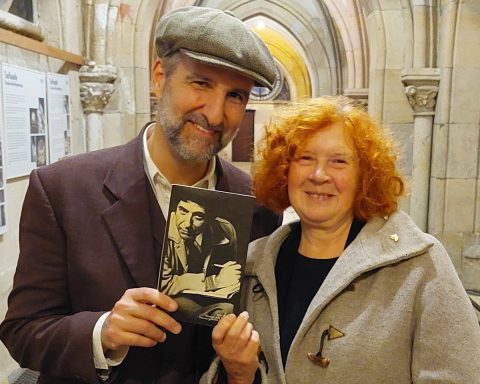Budapest is a must-see city in Europe. The relics of its imperial time provide architectural and historical pearls like its parliament building – as majestic and breath-taking as they come.
While walking this great city, I stumbled upon a very recent and controversial historical monument which, unlike most monuments around the world, had a counter monument just in front of it. The monument in question is “Hungary’s German Occupation of March 19th, 1994.” It rightly has a smaller counter monument in front of it as it is a blunt falsification of history, feeding populist rhetoric and appeasing Hungary’s far right.
Orbán wants to portray Hungary as a victim of Nazism, which is not true.
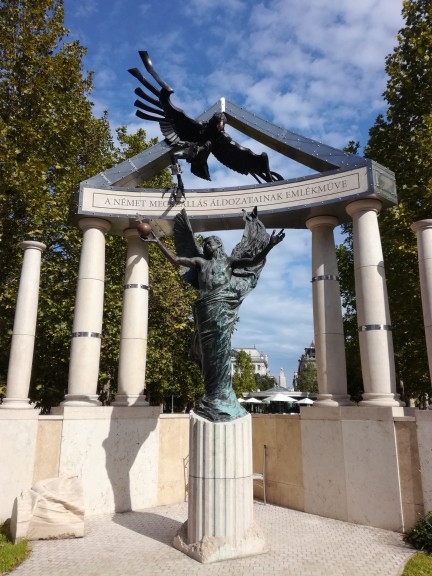
(Photo: Daniel Leon)
Hungary’s all powerful prime minister, Viktor Orbán, had the mentioned monument built overnight in 2014. As pictured, it portrays the German Imperial Eagle descending and attacking a figure that is supposed to be Archangel Gabriel. This angel holds in his right hand a Catholic symbol (Hungary is a Catholic country) found in the Hungarian coat of arms.
Moreover, the angel being preyed upon by the German eagle looks very feminine. Following Catholic imagery, it portrays a sort of virgin being violated by the warlike eagle, a masculine image. Therefore, the monument seeks to convey the story of Hungary as a passive victim of German war crimes.
The fact that Germany committed war crimes is not up to discussion, but the fact that Hungary was a passive victim in the war is. This is why civil society members, including historians, of Budapest, erected a counter monument under the hand rails, across from the official monument.
It is a small, but powerful, counter monument.
Orban’s monument on the role of Hungary in World War II is a lie. Hungary enacted Anti-Semite Laws as early as the 1920s, and the authoritarian government at the time received the Nazi occupation with open arms. That government collaborated with the deportation of thousands of Jews, gypsies and other political dissidents. Historians of the Hungarian Academy of Science unanimously condemned the falsification of history by the official monument.
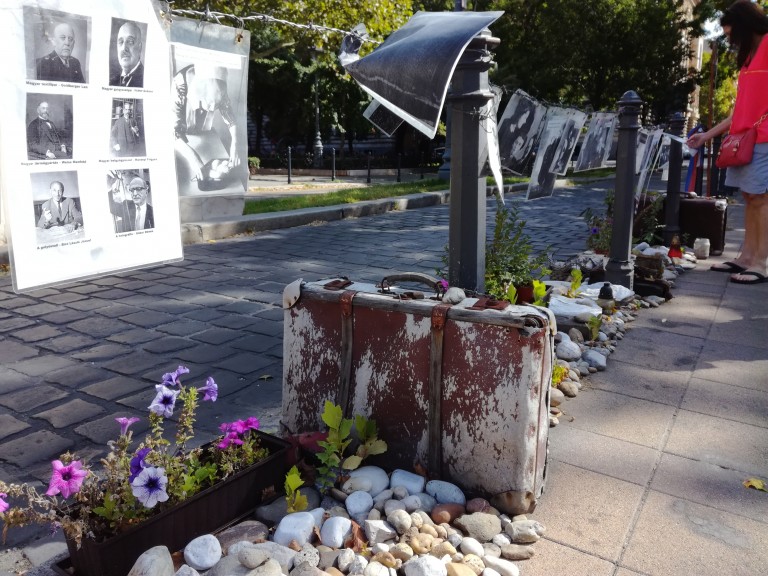
(Photo: Daniel Leon)
To challenge the distortion of history by the Orbán regime, the counter monument shows pictures of the victims, old suitcases representing the deportees who never came back, and pebble stones. These stones refer to a Jewish ritual of remembering the memory of the dead. In this case, it’s about the Jews killed by the Nazis in collaboration with the Hungarian government at the time.
The aim of this counter monument, a form of popular protest, is to demand that the Hungarian government remove the official monument that falsifies a very painful history. Also, the counter monument has information sheets in several languages explaining its purpose.
Historical falsification bears serious dangers.
Orbán’s falsification of history is more than just sensationalist story-telling: it has political consequences. It plays into the hands of the far right and nationalist movements, which argue that the ethnic cleansing of people who are not part of their own “nation” is somehow acceptable – whether as perpetrator or as a poor and unsuspecting victim, as the official monument suggests.
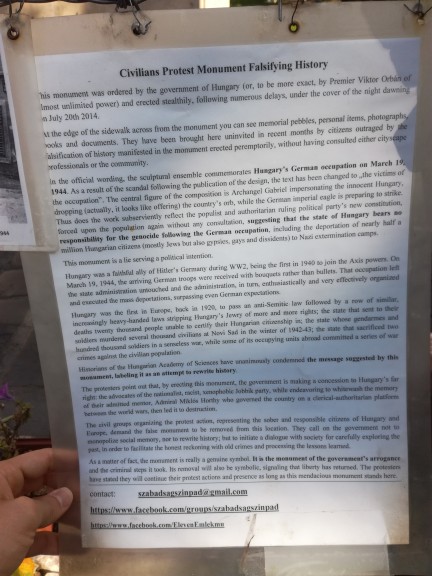
What is taking place in Budapest is similar to the discussion, and fights, over statues of military and political personalities of the Confederacy during the American Civil War. The presence of such monuments provides public approval of atrocities, whether genocide or slavery, from one dominant group to another.
A spectacular city such as Budapest should be free of this kind of detrimental political controversy.


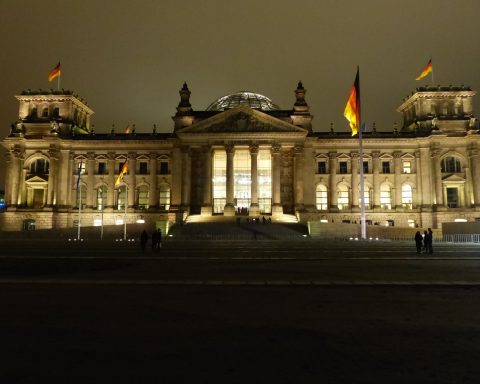





![Wine & Paint event on 9 Nov. 2024 at Felix Restaurant, Leipzig. Photo: Florian Reime (@reime.visuals] / Wine & Paint Leipzig](https://leipglo.com/wp-content/uploads/2024/12/pixelcut-export-e1733056018933-480x384.jpeg)
